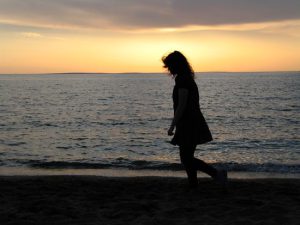Mood disorders have increasingly become harder to treat due to the vast changes in; the collection of symptoms for different conditions, epidemiological tendencies, etiological types, modes of intervention, tools for diagnostics, and varying results from different studies. On the other hand, mood disorders have become a major public health issue in recent years. Such conditions come with a host of problems such as the high medical cost, burden of disease and even suicides.
Anxiety and depression are two of the most common disorders affecting people. The two mood disorders have very similar symptoms and usually affect patients between mood changes. The sad state of affairs, according to a report, is that 30%-40% of patients diagnosed with major depression respond only partially to the available pharmaceutical and psychotherapeutic interventions. Complementary and alternative medicine (CAM) has become a go-to for many patients seeking a different approach to treatment. CAM has been used in isolation and also in combination with pharmacological alternatives to treat patients with mood disorders such as anxiety and depression.
Rodiola rosea For Anxiety
Rodiola rosea has been used for many decades in Europe and in Chinese Traditional Medicine as a remedy. R.rosea was also used in Russia to serve the same purposes researchers are studying it for today; countering insomnia, anxiety and depression and it is available as an arctic root supplement. The clinical data to support its usage in this manner is collecting fast as researchers look into new ways to battle mood disorders and help patients regain a normal life.
More About The Herb
R.rosea is also known as arctic root, golden root, or roseroot. The herb is a flowering biennial plant that flourishes in high altitude and high latitude regions around the world. The herb has gained the attention of the scientific world due to its potential for therapeutic use and also as an adaptogen. Adaptogens are typically products obtained from natural herbs which are non-toxic when used in small doses. Such compounds produce non-specific responses with normalizing physiological effects.
The herb has also shown the capacity work as an ergogenic aid, i.e. an herb with the ability to improve mental and physical performance. The most common indicators for the herb’s potency as an ergogenic or adaptogen have been observed in fatigue reduction, performance enhancement and reducing symptoms of depression.
Active Constituents Of The Herb
Biologically active components of the herb are referred to as its active constituents. These are compounds that have pharmacological chemical compounds. The active constituents R.rosea have not all been identified. However, most clinical preparations have specific contents of salidroside and rosavin, the two potent compounds. While salidroside is common for most of the Rhodiola species, rosavin is unique to R.rosea as it lacks in the other species.
Efficacy Of Rodiola rosea In Treatment Of Anxiety
According to data obtained from numerous studies R.rosea has potential to be an effective treatment for anxiety and other mood disorders. The studies include animal and human tests. In both cases, the results have been encouraging.
According to one study the herb’s adaptogen properties have been observed to have an effect on the central neurotransmission and neuroendocrine functions of the brain. More specifically, R.rosea has a positive effect on the activity of the hypothalamic-pituitary-adrenocortical (HPA) axis. This in turn controls the immune-response system. The process is believed to have a positive impact on the way the body takes on stress and its ability to manage it.
It is also found that the herb has an effect on the central stress reaction due to its effect on the central biogenic amine neurotransmission, also by increasing the permeability of the blood-brain barrier to serotonin and dopamine precursors.
In another study, R.rosea was found to have the capability to increase endorphin levels, which prevents the body from endorphin elevation due to stress. It also has the capability to regulate the release of peptides from the HPA axis. The regulatory effect prevents the body from releasing excess opioids. Catecholamine has the potential to modify tolerance to stress.
Though a lot of research is needed for the effects of R.rosea in the alleviation of anxiety symptoms to be fully established, the existing facts show that the herb is a potent remedy. The medical community is moving towards alternative medicines due to different aspects that have made pharmacological options less viable. R.rosea is one of the herbs scientists are focusing on the most when it comes to mood-oriented conditions which can be treated using psychotherapeutic and pharmacological interventions.



